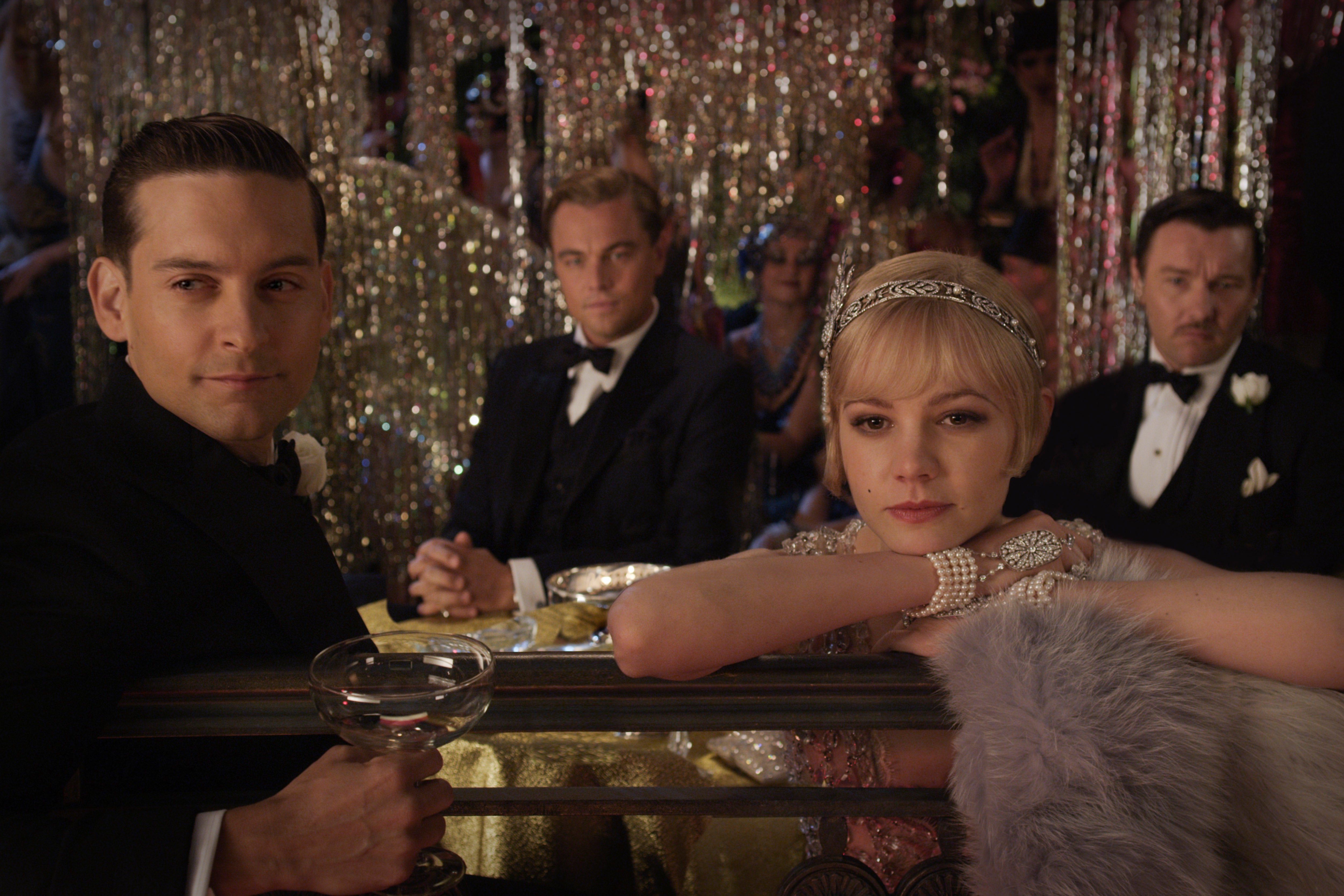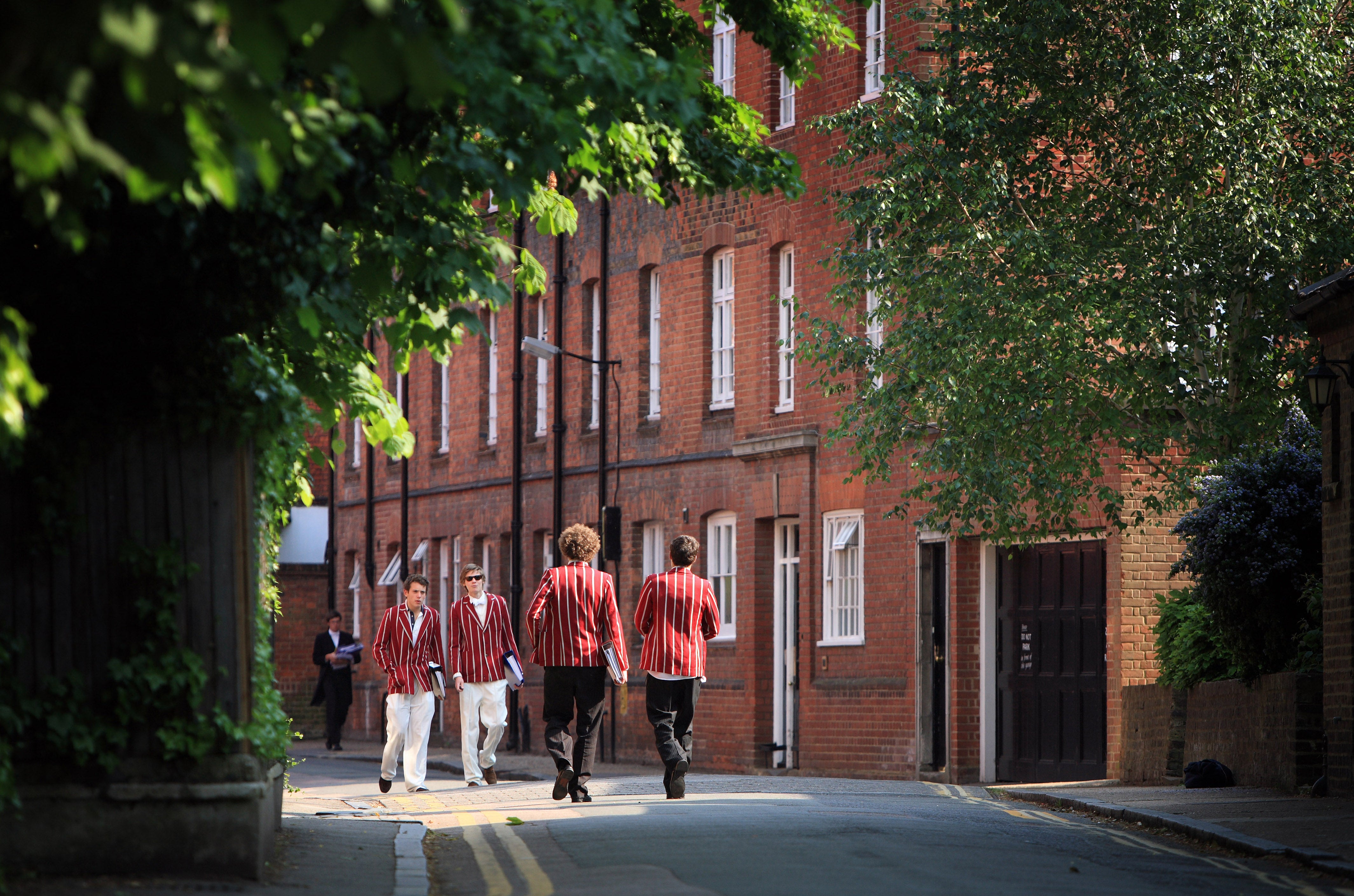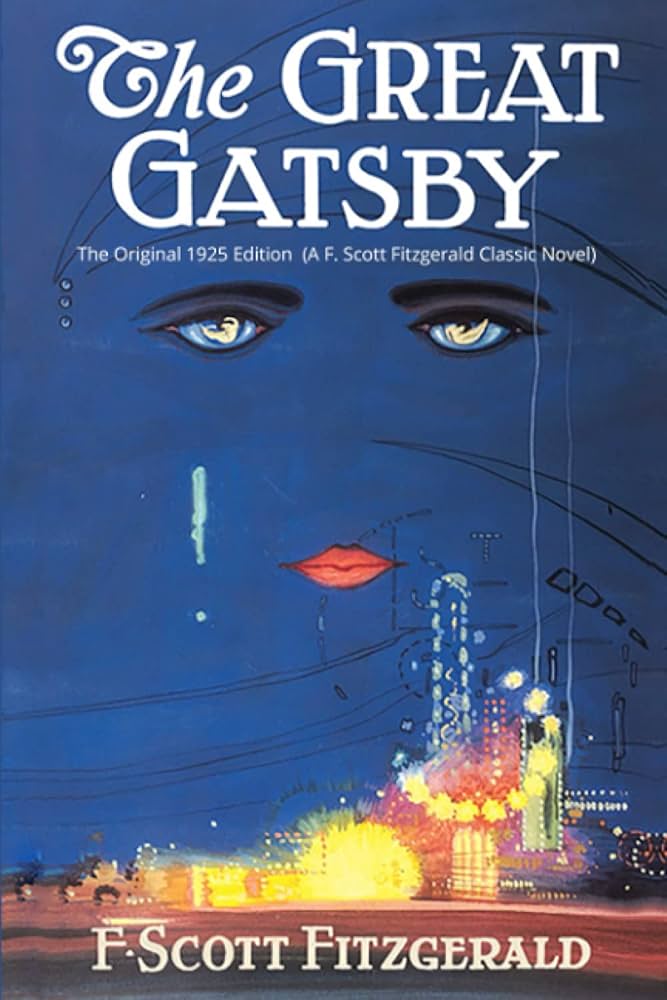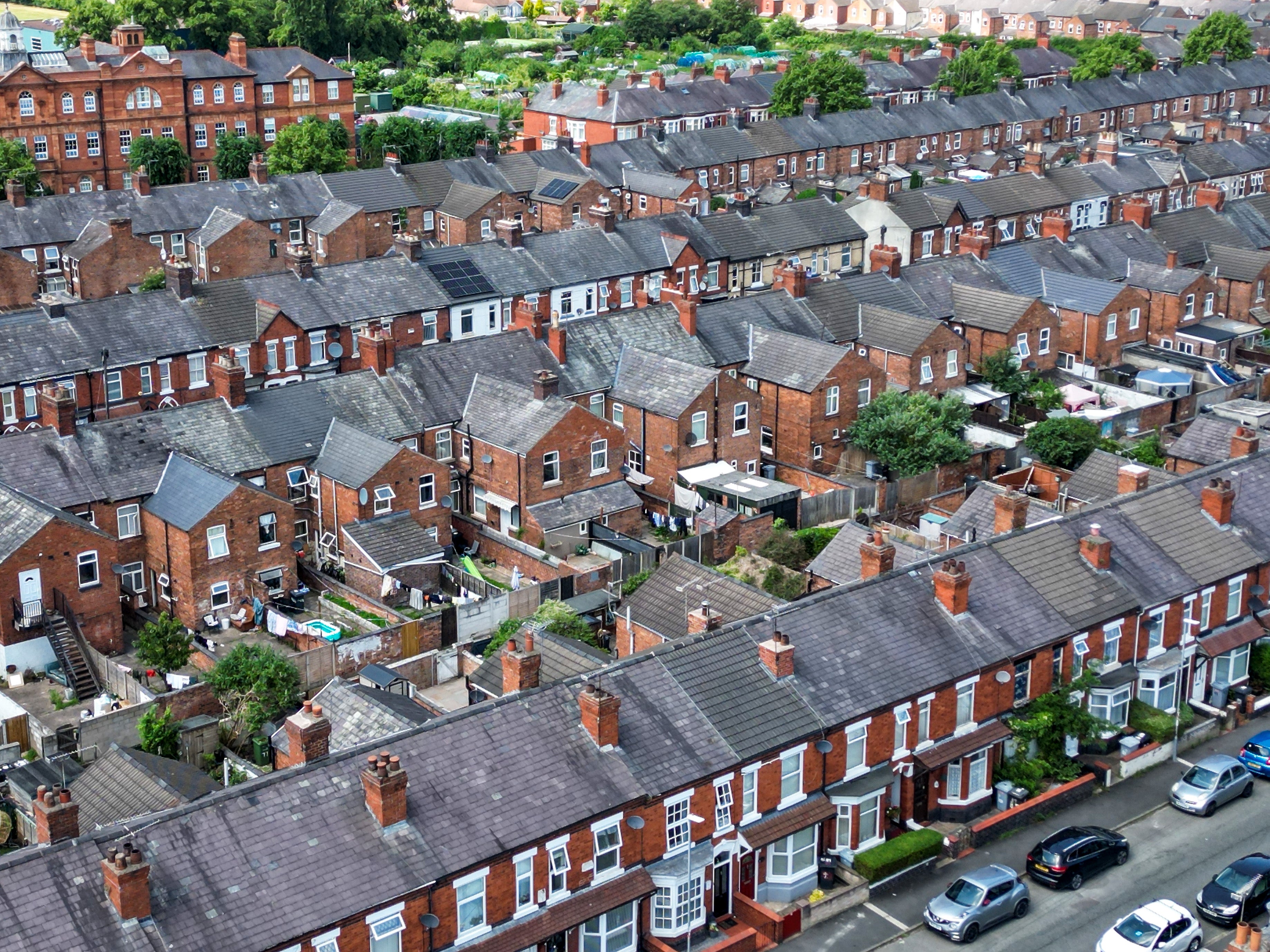The new markers that tell you if you are rich in 2025
A hundred years after ‘The Great Gatsby’ was published – with its stinging depiction of the moneyed classes – data shows that only one in 10 of those earning more than six figures considers themselves rich, and almost everyone feels poorer. Zoë Beaty explores what has changed in how we perceive wealth


Champagne towers, cocktails and caviar: a century ago, F Scott Fitzgerald’s The Great Gatsby immortalised the hedonism of the 1920s Jazz Age elite in their shiny, vacant world, where wealth was both dazzling and doomed. Gatsby was leading the way to the American dream – prosperity and success – in his ultimately tragic pursuit of the unattainable, and his lavish parties epitomised what it meant to be rich.
Back then, it meant Rolls-Royces lined up in the yard, and “crates of oranges and lemons”. But 100 years since the seminal novel was published, our perception of wealth has evolved.
Some things haven’t changed at all – namely, we’re no less captivated by money. From Succession to The White Lotus, Triangle of Sadness to Expats, wealth porn still sells just as fiercely as Fitzgerald’s classic depiction of the high life. We love to ogle the vulgarity, condemn the materialism, and analyse the fragile egos of those who seem to have so much and yet so little – but still imagine how we might one day find ourselves up there, too.
What’s sometimes unclear is what exactly “up there” looks like, and how to tell when you reach it. While owning a media empire or staying at a five-star luxury resort in Thailand might be an obvious giveaway, the parameters we use to define wealth and status are ever evolving, sometimes in peculiar ways.
Now, nine out of 10 people who earn more than £100,000 per year don’t consider themselves wealthy. A survey by YouGov for HSBC found that the general public believe that to be considered “rich” you must earn an average annual income of £213,000 – more than seven times the national average salary of £30,000.
The same survey found that, rather than being a landowner, just owning a kitchen island might be enough to prove you’re well off. A private driveway is now considered decadent, and having a car to put on it – sports model or otherwise – is seen by some of those surveyed as denoting privilege.
There’s plenty of data that tries to pin down the exact point at which you go from not-rich to rich – one survey found that a pre-tax income of £180,000 per year puts you in the top 1 per cent of earners in the UK in 2025, while to be in the top 1 per cent of wealth holders, said the Office for National Statistics in 2022, you need to own £3.6m of assets. Other sources find that the figure is significantly lower, at £120,000, while earning £62,750 or more a year before tax places you in the top 10 per cent of earners nationwide.
The thing is, by these definitions, the wealthy no longer consider themselves wealthy, or feel it. In a country still shaken by the events of the last five years, particularly the heady days since Donald Trump instigated his tariff war (with more shockwaves set to come), our perception of our own wealth (or lack thereof) and that of others – of what it means to be rich – is more nuanced.
Driving that change is, of course, wealth inequality – which, after a long era of austerity, a cost of living crisis, Covid, the ongoing impact of Brexit, and some shocks to global politics, has been on a worrisome trajectory for many years. The trouble is, says Danny Dorling, professor of human geography at the University of Oxford, “The more unequal a country gets overall, the poorer the wealthy feel.”

“We’re actually more in the 1930s than the 1920s when it comes to wealth inequality,” explains Dorling, who has written several highly acclaimed books. “Which might sound like a pedantic difference, but actually, if you go back to the very start of the 1920s in England and look at the richest, the 1 per cent – who really were the aristocracy – they had an income that was 400 times the average, and their income mainly came from their wealth and their assets, which were often overseas.”
Currently, he explains, wealth is concentrated in housing and pensions, with house prices failing to keep up with inflation. “I don’t want to exaggerate it, but the Covid pandemic also disproportionately affected the wealthy,” says Dorling. “It was an incredibly age-specific disease, more than almost any other. And it’s the rich who get to live to their nineties more often than working-class people, who tend to die younger.
“So a very large number of Covid deaths were of elderly people, including people with property in the countryside. That property ends up being sold by the family earlier than it would have been if they hadn’t died, and a couple in London, say aged 55, do a jump to the countryside 10 years earlier than they might have done. That produces a temporary, apparent rise in house prices, which is why for the past few years we have had a degree of uncertainty about wealth – partly because, when these folk die, the money doesn’t disappear but it does get more concentrated among those who have inherited.”
Wealth inequality was at its lowest, says Dorling, in the 1970s – now, charities such as the Joseph Rowntree Foundation are calling for heightened awareness of the gap between the rich and the poor in order to curtail the burden of precarity borne by those who have the least.

Research by King’s College London, published in January, even went as far as to say that wealth inequality could cause “societal collapse in the next decade” if politicians don’t pay attention. “And that’s the thing,” says Dorling. “While income inequalities peaked around 2018, they have been coming down slightly. But absolute poverty has increased. Destitution has increased. Almost everybody is poorer. So it’s a strange time – and, in a way, it’s just like the time after the Great Gatsby era – just as the shine was coming off.”
Even the well off – or at least comfortably off – feel poorer. “There’s a subjective element that is hard to address when it comes to defining who is considered rich, or wealthy,” explains Aaron Reeves, a professor of sociology at the London School of Economics and co-author of Born to Rule: The Making and Remaking of the British Elite. “Through a straightforwardly economistic type of lens, how we define wealth quite simply comes down to how many net assets you own. At the moment, to be in the top 10 per cent of the wealth distribution, you need about £1.2m in assets at a household level. But when you think about house prices in London, for example, that’s not that economically large for many people.
“Those house owners might not think of themselves as rich: most people carry a strong sense of those who are above them. Again, this subjective element over the objective definition of wealth distribution comes down to where you think you sit in relation to other people.”

It’s not new, and neither is the idea of that “squeezed middle class”, says Reeves: we really do feel less well off. “What’s happened over the last couple of years is that living standards went down for lots of people, partly because of the cost of living crisis. And although the impact of that was most keenly felt at the bottom of the income distribution, it absolutely did affect everyone – everyone is buying food and petrol, labour costs have gone up, things like nurseries have become more expensive over the short term.
“At the same time, we’ve gone through a period in Britain of very low growth, and wage stagnation on top of that. All of it has contributed to this real sense that things haven’t been feeling secure, or as though they are progressing.”
That sense of security is key – while the Roaring Twenties and other periods of high growth were all about conspicuous consumption, now affluence comes down to whether or not you feel financially secure. Especially when you’re not relying on an active income.
But wealth isn’t all about numbers on pages. More than ever, it’s about having the right stake in the right pie; enough on paper to get you the right level of influence where it matters – or having a “voice full of money”, as Fitzgerald says of his character Daisy Buchanan, a wealthy socialite. Key markers these days include things like being able to give your children a private education (though Dorling is quick to point out that this “doesn’t mean you’re buying a ‘good’ education; you’re just buying results”). In the case of private schooling, this is not only because of the money required to pay for it, but because of the social advantages and influence it can afford people later in life.

A report by the Fairness Foundation, along with the Policy Institute at King’s College London, found that 63 per cent of Britons now think the very rich have too much influence on politics in the UK – and you only have to take a glance at US politics to see how dangerous the repercussions of that can be.
The Great Gatsby, though, was about aspiration – something that, in Britain these days, feels almost naive. The age of social mobility, the potential to move up the ladder, has become little more than a lottery. The rise of the “inheritocracy” means that the age of ambition could be over. Someone who can help their child climb onto the property ladder (something that is almost impossible for many millennials and Gen-Zers) would now be considered rich; a young person with even modest savings put aside might also be placed in that bracket.
In the latter part of the 20th century and the early part of this one, the “silver elite” – now the over-50s – benefited from rising property prices and generous pension schemes. Today, high earners in their thirties and forties, who also have to contend with extortionate nursery fees and sky-high mortgage rates, are bound to feel poor in comparison to how they might have fared two or three decades ago.

It’s likely why The Economist went as far as to say that, now, it’s not your career that matters. Getting rich comes down to marrying the right person; someone who can provide inherited wealth if you don’t have it – a method straight out of the pages of Jane Austen’s Pride and Prejudice.
In that sense, then, Gatsby himself – a self-made man with exuberant wealth – would be a rare figure in today’s society, though infinitely more of us aspire to live the high life. You don’t have to be invited to a Gatsby party to observe wealth up close any more: you just have to look at your phone. And we probably all feel the poorer for it, though it is interesting to note the list of things that are now considered markers of wealth.
YouGov found that the social media age has seen the rich “prioritise lifestyle, health and wellness over luxury goods”, while investments have emerged as a critical indicator of affluence. This trend is especially pronounced among the young, who increasingly view a certain lifestyle as ‘the new luxury’.” Definitely not very Gatsby (or, let’s be honest, any fun).
But then, maybe that’s the point. Nowadays, being rich isn’t just about being able to buy – it’s about being cushioned from the chaos, free from acute worry, with the ability to do what our parents did: to give our kids a better start than we had. Just like Gatsby, we’re all still reaching for that unattainable dream. But the decades in between have shifted the goalposts. Now, being rich looks less like excess and lavish parties – and more like having peace of mind.
Do you feel rich or consider yourself wealthy? Let us know...



Join our commenting forum
Join thought-provoking conversations, follow other Independent readers and see their replies
Comments